Abdullah Kurdi lost it all. Now in a whirlwind, there is no peace
The photograph of Alan Kurdi, dead on a beach, moved the world. Now, his father has become a pawn in the region’s intractable conflicts. It’s tearing him apart.
Erbil, Iraq Abdullah Kurdi sits in the head office of the Barzani Charity Foundation, the main, government-linked NGO in Iraq’s Kurdistan Region. Since the iconic photograph of Alan Kurdi, Abdullah’s 3-year old son, lying dead on a beach was published, Abdullah has become a kind of star in Iraqi Kurdistan, the image appropriated by local authorities and turned into a symbol for the broader Kurdish struggle.
Share
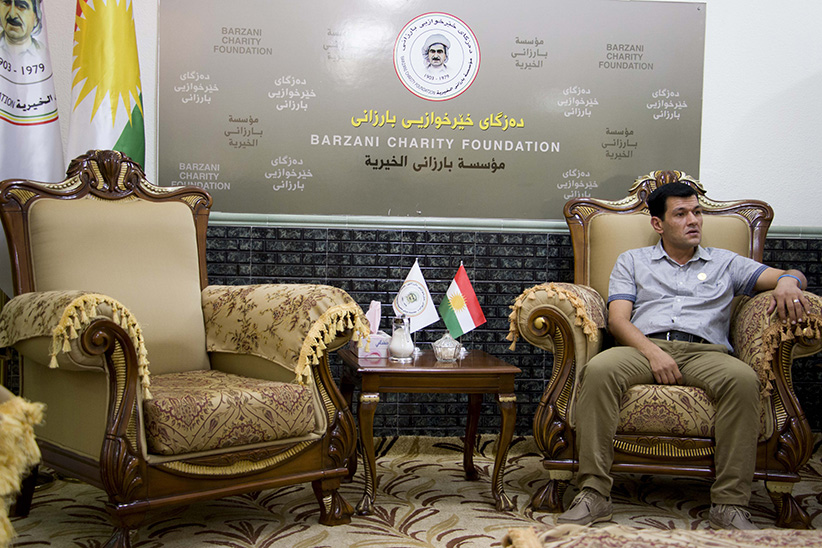
When Abdullah Kurdi walked into the dining hall on the grounds of Duhok University in northern Iraq on Oct. 8, he was expecting to participate in a graduation ceremony. It seemed the perfect fit for the 40-year-old Syrian refugee. The ceremony, he was told, would honour those who had lost their lives fleeing the region for Europe. Kurdi would be the guest of honour, symbolizing in his own way the human cost of war and displacement.
In the early morning hours of Sept. 2, while attempting to reach Greece from Turkey, Kurdi lost his wife, Rehana, 35, and both his young sons, Galib, 5, and Alan, 3, when their flimsy inflatable raft overturned in rough waters on the Mediterranean Sea. The tragedy of that loss was immortalized in a single photograph: Alan lying lifeless on the beach, face in the sand and arms at his side. The photograph seemed to both shame the world and symbolize the horror of the Syrian refugee crisis.
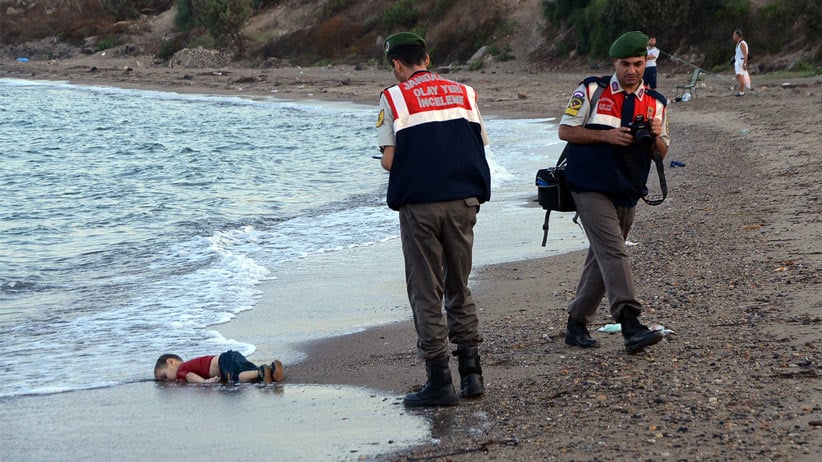
But something went horribly wrong that October evening in Iraq. When Kurdi arrived, neatly dressed in a blue polo shirt and khaki pants, along with his sister, Tima Kurdi, he was ushered to his seat alongside other dignitaries. The crowd of about a hundred students and their families strained their necks trying to catch a glimpse of the man who had become a minor celebrity in Iraq’s Kurdistan region. What they couldn’t see, however, was the look on his face when he was confronted by a poster directly across from him, taped to a pillar, depicting that same photograph of his dead three-year-old.
The impact was obvious to those near him. Moments after he sat down at his seat, Kurdi broke down into subdued tears. The battle raging inside him—between his new duties as an advocate for Syria’s refugee children and the father who has lost everything—finally surfaced. He struggled to maintain his composure while his sister, who had flown to Iraq from Vancouver to support her brother, quietly scolded the organizers. That poster, one of several, was quickly taken down and reattached to the opposite side of the pillar, out of Kurdi’s line of sight. Another dignitary reached over and placed his hand on Kurdi’s shoulder: “You should marry again as soon as possible,” the man said. “It will ease your pain.”
Tima was furious. “It was sickening to see,” she said later. “I don’t understand why people can’t just respect the fact that Abdullah is a human being. He has feelings like everyone else.”
As special guests of Neçirvan Barzani, the young, media-savvy prime minister of the Kurdistan Regional Government (KRG), Kurdi and his sister were afforded all the protocols of visiting dignitaries over the last two weeks, shuttled around in a luxury SUV, housed in the region’s top hotels. They toured refugee camps, distributing school bags to children to the delight of adoring local news crews, and crept along frontline positions where members of the Kurdish peshmerga, basking in their battlefield successes against the so-called Islamic State, had made Abdullah an honourary member.
In Duhok, the last stop in what had been a whirlwind tour, the poster depicting Alan was presumably meant to convey a sense of commiseration. It was, according to one of the organizers, a reminder of the suffering of the Kurdish people. “Abdullah’s tragedy is the tragedy of all Kurds,” he said. “For us, the image of Alan is the image of every Kurdish child who has died at the hands of terrorists and hostile governments.”
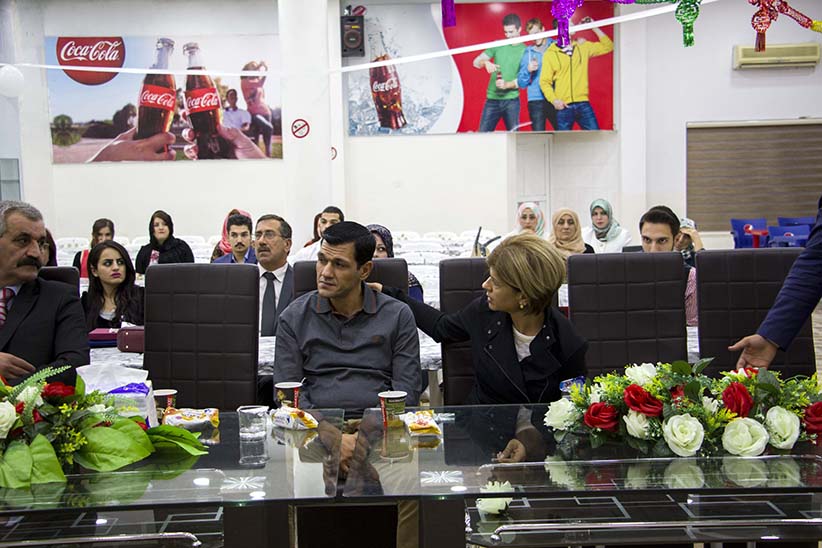
The appropriation of Kurdi’s tragedy didn’t sit well with his sister. Though the Kurdi family is ethnic Kurd with roots in the northern Syrian town of Kobani, they spent much of their lives in Damascus. Neither Tima nor Abdullah speak Kurdish. Abdullah spent a few months in Kobani with his wife and children in 2011 (Alan was born there) before making his way to Turkey in search of a better life for his family. He returned there for the first time in September to bury his family.
Nearly two months have passed since then. Over that time, Abdullah Kurdi has travelled a dark road, always under the scrutiny of the world’s media, and never seeming any closer to finding peace.
In the days and weeks following his family’s funeral, he refused to leave the graveyard, sleeping next to the graves of his wife and children and vowing to join the Syrian Kurdish militia, the YPG, to fight Islamic State. “I will stay and fight for Kobani,” he told Newsweek in September, “fight for the family I have left and for my people.”
By the middle of the month, he was in Irbil, the capital of Iraq’s Kurdistan region, on the invitation of Barzani, where he promised to hunt down the smugglers behind the doomed journey across the Mediterranean and put to rest claims that he himself was a human smuggler.
In the end, that was not necessary. Kurdi tells Maclean’s that Turkish authorities have arrested the smugglers. “If I met them now,” he says, “I would want to ask them why they lied to me. They said this trip was guaranteed, that we would easily reach Greece.”
Their arrests, however, have not put the accusations to rest. Instead, as his life takes a new turn in Iraqi Kurdistan, more criticisms have surfaced. Some now see him as an opportunist, capitalizing on his tragedy for personal gain. Rumours have spread that Kurdi has accumulated a small fortune, even selling Alan’s clothing for profit.
“People in Kobani come to him demanding that he pay for their medical expenses,” says Tima. “Others think he has somehow become politically powerful and ask him to intervene on their behalf with the government. He’s under so much stress now because he doesn’t know what to do. He wants to help but he has no means to do it.”
The rumours, Tima says, are all false. “I had to give him pocket money this morning,” she says. “All he owns are his clothes and his cellphone. That cellphone is his life now. He spends hours on end scrolling through the Internet looking for what people are saying about him and Alan.”
It’s painful to watch, she adds. In the age of digital image manipulation, the photograph of his younger son has been reduced to a mere signifier for a host of online ideologues and social media hit-hounds. It has been appropriated by satirical publications like Charlie Hebdo, which published a series of cartoons in mid-September using the image of Alan to criticize Europe’s refugee policy. It has been endlessly recontextualized by an army of Photoshop junkies, morphing and remorphing in cyberspace in a frenzy of visual op-eds ranging from criticisms of world leaders for failing to act to condemnations of Kurdi himself for putting his child in such a dangerous situation.
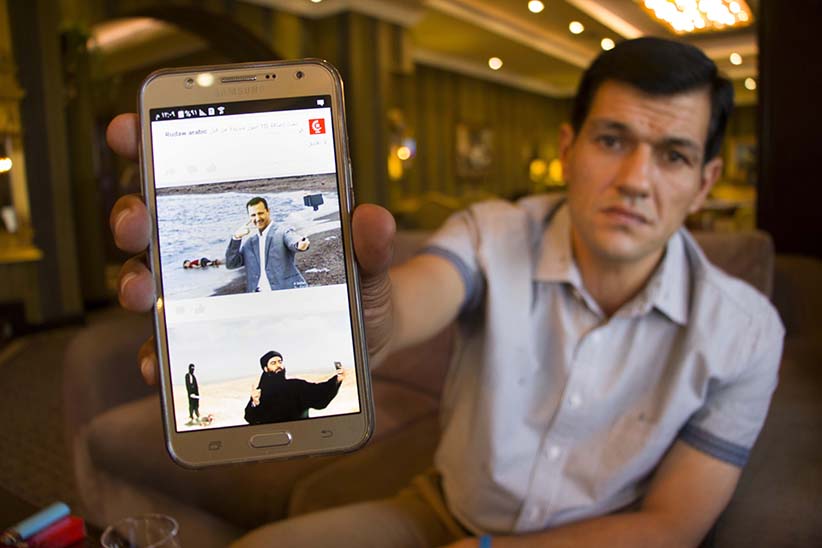
For Kurdi, a simple barber with a primary school education, all the attention is unsettling. The role of advocate and the VIP attention he has received in Kurdistan does not fit well with his nature. “So many world leaders have called me,” he says, in a quiet, tentative voice. “Some even spoke to me in other languages. I didn’t understand a word they were saying.”
The scrutiny is taking its toll, Tima says, and during the five days Maclean’s spent with the Kurdis in Kurdistan, he was rarely willing to speak, allowing Tima to speak for him. Her priority, she says, is his mental health.
“He seems to be fine when he goes out on these tours with government officials,” she says. “He is happiest when he is around other children. But when he comes back to the hotel, where he is alone with me, he breaks down. All of the life drains out of him and he stares at his phone, looking for what people are saying.”
At his worst moments, he seems despondent, Tima adds; at his best, he dreams of opening up his own charity to help refugee children. The extreme swings appear to be a function of the promises the KRG has made and the accusations against him that continue to swirl on the Internet.
For the Kurdistan leadership, Kurdi represents a means to an end, says Aziz Sheikh Reza, head of the Barzani Foundation, the government-linked aid organization in Iraqi Kurdistan. The Kurds in Iraq have, arguably, suffered the most over the decades of the Kurdish struggle for independence. Under Saddam Hussein’s rule, they were gassed and subjected to a campaign of ethnic cleansing. Since the first Gulf War in 1991, however, the Kurdistan Region has benefited from a no-fly zone established by the U.S. and U.K. It now represents the closest the Kurds have come in living memory to an independent state.
“In that context, Abdullah represents an opportunity to highlight the Kurdish issue,” says Reza. “The accident of the photograph is the only thing that makes him special. He is not alone in his tragedy: we have thousands like him who have lost everything.”
Despite his usefulness as a way to access an international audience, Aziz is frank about Kurdi’s future prospects: there are none, he says. “We certainly can’t employ him here at the foundation. For an uneducated person like him, there are not many opportunities in Kurdistan. He is just one among millions.”
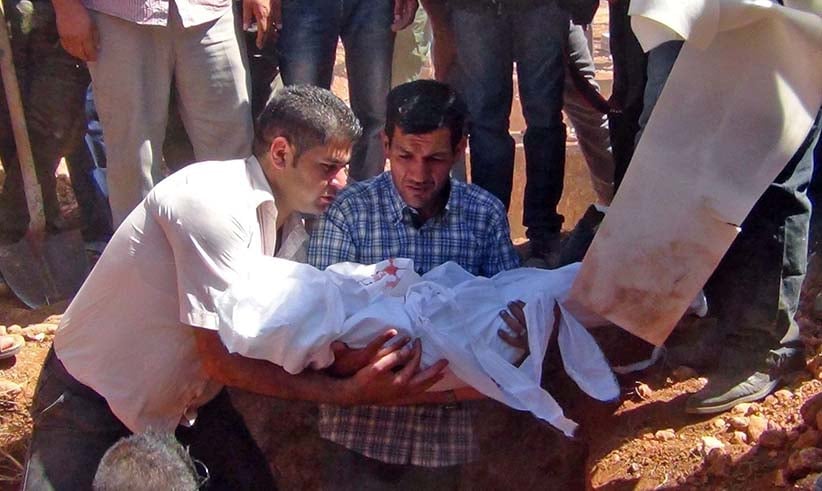
It’s difficult to avoid the conclusion that Kurdi has become a pawn in the complex regional politics plaguing the Middle East. Shortly after the picture of Alan was published, Turkish President Recep Tayyip Erdogan called him and offered Turkish citizenship. A short while later, Barzani, the KRG prime minister, invited him to Iraqi Kurdistan, pulling the rug from under the Turks in a deft public relations coup.
The KRG has been actively promoting Kurdi as the symbol of the Kurdish struggle for independence, a notion Kurdi himself only vaguely understands. Barzani has promised to help him set up his charity. He has offered to rebuild the hospital in the northern Syrian town where Alan was born, and which was destroyed during battles against the Islamic State, as well as build a school dedicated to the memory of the three-year old.
But the offer is laced with political intrigue. The KRG has had a tumultuous relationship with the dominant political party in Syria’s Kurdish region, the PYD. The Syrian Kurdish militia, the YPG, has occasionally clashed with its KRG counterpart, the peshmerga. Many peshmerga fighters still consider the YPG a terrorist organization.
For years, the PYD has accused Iraqi Kurds of attempting to hijack their revolution in Syria. On a recent visit to Kobani, Kurdi presented the KRG’s offer to rebuild the hospital to the local leadership but the response was lukewarm at best. “They were suspicious of the KRG’s intentions,” Tima says. “They told him they want the money in their hands. But Kurdi refused. They finally relented and agreed to the offer.”
Whether the construction of a school and hospital actually happens remains to be seen but Tima worries her brother’s state of mind is not ready for the stresses of Middle Eastern power politics. She would rather see him come to Canada.
A failed attempt earlier this summer was given a new lease on life in the wake of the Liberal party’s stunning victory at the polls on Oct. 19. Under the Conservative government, Tima says the rules for sponsoring family members had become so onerous that she had given up after her request to sponsor her other brother, Mohammad, was rejected. Now, she says there is some hope.
On Oct. 7, Citizenship and Immigration Canada invited Tima to resubmit her application to sponsor Mohammad, who is currently in Germany, and his family, who remain in Istanbul. Encouraged by the request, she says she is also in the process of drafting a letter to incoming prime minster Justin Trudeau, which will ask him to fast-track Abdullah’s case and to keep his campaign promise to allow 25,000 refugees to come to Canada by the end of this year.
It’s unclear, however, what kind of reception Kurdi would receive here now. Changes to Canada’s refugee policy announced on Sept. 19 by Citizenship and Immigration Minister Chris Alexander, removing the requirement for Syrians to be registered with the UNHCR—documentation that is impossible to obtain for many Syrians—would make it easier for Kurdi to apply. But news of Tima’s intentions has ignited a firestorm on the Internet. Tima says she is shocked and dismayed by the responses she has read. “People in Canada are still saying he is a people smuggler,” she says. “They accuse him of killing his family on purpose so he could get to Europe. They say he doesn’t deserve to be allowed to come here, that instead, he should be put in jail.”
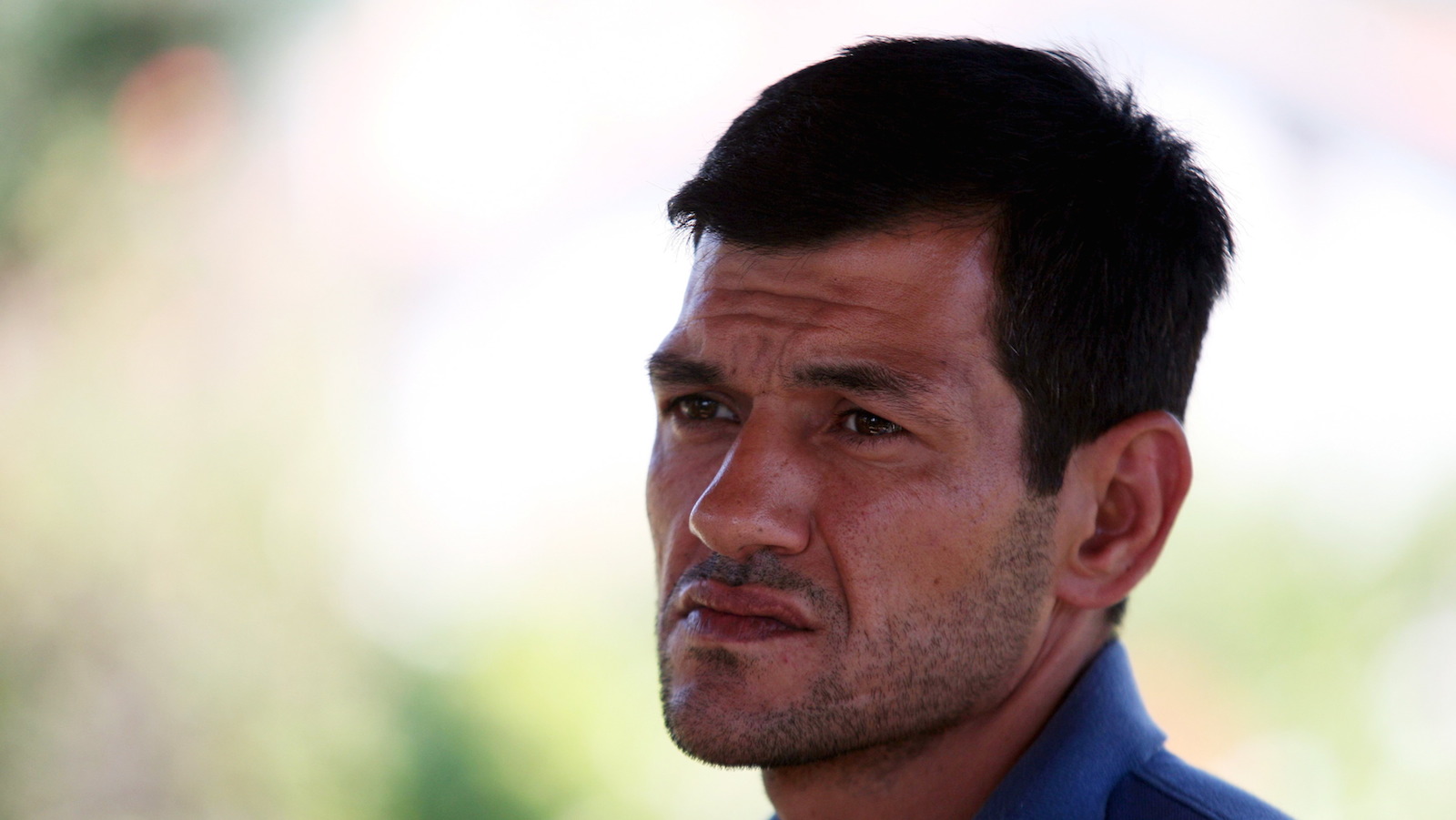
The accusations are perplexing. A Maclean’s investigation in Turkey in September found that smugglers often use refugees to help them organize smuggling trips. “If the group is made up of Arabs, then the smugglers, who are all Turks, will ask one of them who speaks Arabic to help with the preparations,” one Pakistani migrant told Maclean’s. “He might be asked to negotiate with newly arrived refugees to fill up the boat or to convey messages to the passengers, or even to drive the boat itself. These helpers get a discount on the fare for the journey.”
At worst, Kurdi may have played that role for the smugglers organizing his trip, which does not diminish the fact that he was a desperate father trying to get his family to safety.
These sorts of misconceptions are weighing down on her brother, Tima adds, and staying in Iraqi Kurdistan, where the KRG has offered him permanent residence as well as a fully furnished home, will only deepen his feelings of isolation and depression.
“I can help him with money if he decides to stay there but I don’t see a stable future for him,” she says, after returning to Canada from Kurdistan earlier this month. “He won’t get the psychological help he needs in Iraq. I’ve already taken him to one psychologist there and all he did was prescribe some pills. Abdullah’s already popping Advil like it’s candy. He suffers constantly from headaches and he can’t sleep. He needs help and Canada can at least give him that.”
Both Tima and Abdullah are nonetheles grateful for what the KRG has done for them. The treatment they received while on their public relations tour was overwhelming, Kurdi says. “I was encouraged by the way Neçirvan Barzani treated me,” he adds. “He talked to me like an honest brother and helped me come up with the idea of opening a charity.”
But the experience at the graduation ceremony in Duhok has put Tima on edge. What was supposed to be an event dedicated to Syrian refugees instead turned into a jingoistic spectacle dominated by peshmerga fighters and peppered with calls for Kurdish independence. Kurdi tried to put on a brave face, despite being surrounded by posters of his dead son. He produced a strained smile for the hordes of people requesting photographs and selfies, shook the multitude of hands extended to him and allowed himself to be manhandled. But once the chaos had passed, he made a dash for the door. He didn’t look back. Tima followed close behind, turning around once for a look at the crowd, concern written on her face.
Once they left, the remaining people quickly turned their attention back to the medals and certificates they had received. No one mentioned refugees again.